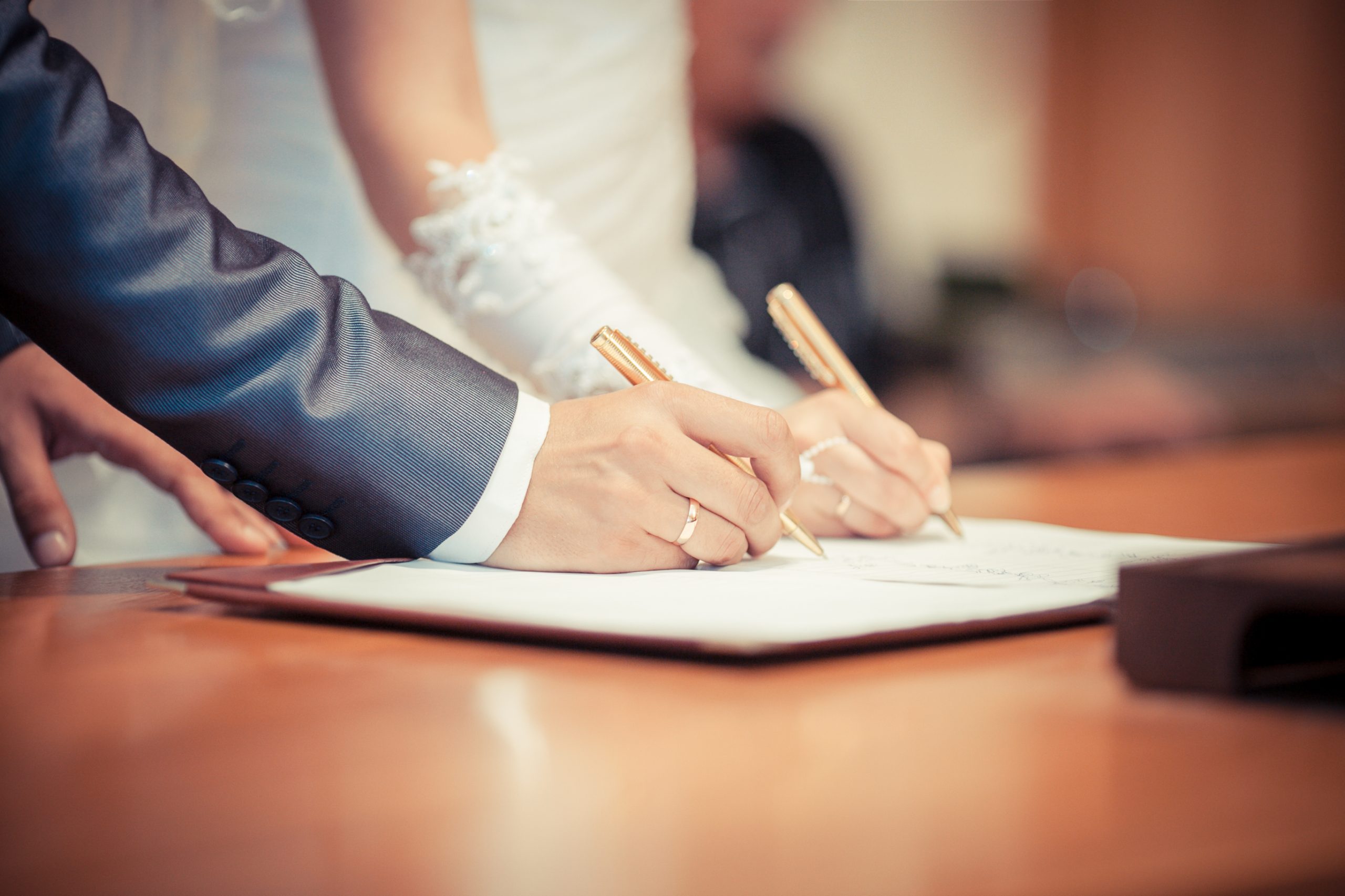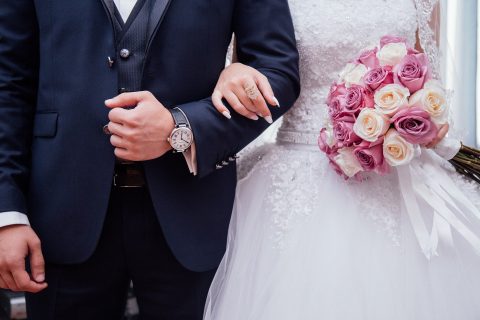
What Is HMRC Marriage Tax Allowance In The UK?
If your claim is approved, it will reduce the higher earner’s tax bill for the current tax year
Can I Backdate The Marriage Tax Allowance Rebate?
You can backdate your marriage allowance claim by up to 4 years if you are eligible. The backdated amount will be sent to you in the form of a cheque and the current tax year amount will be added as a tax credit to the higher earner’s tax account with HMRC. This tax credit will continue to be added every year as long as both partner’s circumstances do not change.
How Do I Know If I Am Eligible For Marriage Tax Allowance?
- You must be married or in a civil union (only living together does not qualify).
- One of you must be a non-taxpayer between April 6, 2021, and April 5, 2022, which normally means earning less than the £12,570 personal allowance (see previous personal allowance rates).
- The other spouse must be a basic 20 percent rate taxpayer (this allowance is not available to higher or additional-rate taxpayers). This means you’d have to make less than £50,270 (see previous tax year rates) or £43,662 if you live in Scotland (see previous tax year rates).
- You and your partner must have been born on or after April 6, 1935 (if you weren’t, there’s another tax benefit).
So, in a nutshell, one of you must be a non-taxpayer and one must be a basic-rate taxpayer.
What Is The Maximum Marriage Tax Allowance I Can Claim For 2021/22?
The maximum marriage allowance you can claim for the tax year 2021/22 is £1,260, this equates to a tax saving of £252 for the higher earner in the marriage or civil partnership.
Wouldn’t I Pay Less Tax If I’m Married Anyway?
Technically, no. If you don’t take advantage of the marriage tax allowance, you will not get the tax benefit. Also, it only lowers your tax if one partner earns less than £12,570 per year.
For The HMRC Marriage Allowance Tax, How Do I Check If I Am A Non-Taxpayer?
A spouse with unused personal allowance will pass £1,260 to the other (so basically 10 percent of the full allowance). They are only allowed to transfer £1,260 – neither more nor less.
How long does it take for marriage allowance to be paid?
Your personal tax allowance (the amount you can receive tax-free) can vary from the amounts above in rare cases, but your tax code letter would tell you. This may be because you have a company vehicle, owe taxes, or your savings interest puts you over the limit.
A general rule of thumb you can use is if you are earning more than £1000 gross per month, then you are probably paying tax and if it is less than £1000 gross per month, then you are not paying income tax on your salary.
You can also check how much (if any) tax you are paying via this HMRC link.
Should my partner/spouse or I apply for Marriage Tax Allowance?
You can apply for the Marriage Tax Allowance Claim online With Us
If you’re the applicant and the application is successful, then HMRC will set your partner up by either their self-assessment tax return or adjusting their tax code and sending any successful backdated aspect of the claim via cheque.
Can I claim Marriage Tax Allowance if I'm unemployed?
Yes – one of the stipulations of being eligible for the Marriage Tax Allowance is that one of you needs to be not paying tax. If you’re unemployed, you can transfer 10% of your personal allowance to your partner – but they must be a basic rate taxpayer (20% taxpayer)
Self-employed people can also claim marriage tax allowance if one partner earns less than £12,500 and the other earns between £12,501 and £50,000.
It’s important to remember that if one of you does self-assessed tax returns, the marriage tax allowance will reduce your bill.

How much is the Marriage Tax Allowance Claim Worth For Different Tax Years?
For the tax year 2021/22, the marriage tax exemption is worth up to £252. If you’re qualified and apply successfully, you’ll get the tax break every year after that, so there’s no need to keep re-applying.
You can backdate the claim for up to four tax years (currently 2017/18, 2018/19, 2019/20, and 2020/21) in addition to the current year’s allowance.
The amounts for each year are worth up to:
- 2021/22 – £252
- 2020/21 – £250
- 2019/20 – £250
- 2018/19 – £238
- 2017/18 – £230
This means you will get up to £1,220 if you claim for this tax year and backdate the maximum four years. This will happen without you having to check any boxes or make a special request – it will happen automatically.
However, if you want to claim for the 2017/18 tax year, you must do so by April 5, 2022. When the new tax year begins after this date, the furthest you’ll be able to backdate your marriage tax allowance claim will be to 2018/19. Although you’ll still get roughly the same amount – the current tax year plus up to four backdated years – the £230 you should have received for 2017/18 will be lost.
How Is The HMRC Marriage Tax Allowance Calculated?
A spouse with unused personal allowance will pass £1,260 to the other (so basically 10 percent of the full allowance). They are only allowed to transfer £1,260 – neither more nor less.
How Long Does It Take For A Marriage Allowance Claim To Be Paid?
At the time of writing this article, HMRC has a backlog of claims to deal with and is currently taking approx 12 weeks to respond to applicants.
Do I Need To Apply For Marriage Tax Allowance Every Year?
You do NOT have to apply every year.
Your personal allowance will transfer automatically to your partner until one of you cancels the marriage allowance or you inform HMRC that your circumstances have changed, eg, because of divorce, employment pushing you into a higher-rate tax threshold, or death.
What Are The Time Limits For Claiming A Marriage Tax Rebate?
Marriage Allowance can be backdated for up to 4 years, so you have until April 5th, 2021, to claim for the current year and every eligible tax year since 5th April 2017.
How Long Does HMRC Take To Pay Marriage Tax Allowance?
Under normal circumstances, HMRC process Marriage Allowance claims within 4-6 weeks, but due to the pandemic which started in early 2020, this turn-around time has increased steadily. It can now take up to 3 months for HMRC to process applications and issue payments if successful.
Can I Claim Marriage Tax Allowance While On Maternity Leave?
Yes. If, while on maternity leave, your income falls below £12,570, you can apply to transfer 10% of your personal allowance to your spouse.
Can I Be Taxed By The HMRC for making a marriage tax allowance claim?
No, marriage allowance is a way of paying less tax if one partner is not using all or any of their personal allowance.
Can I Claim Marriage Tax Allowance If Separated From My Spouse?
No, it is not possible to claim the marriage allowance after you are divorced or your civil partnership is dissolved, even if the claim would be for a time when you were still married or in a civil partnership.
If you are in receipt of Marriage Allowance, you should not receive any benefits for any tax year after your marriage has ended (by divorce) or your civil partnership has been dissolved.
Can A Pensioner Claim Marriage Tax Allowance?
Yes, pensions are tax-deductible, so as long as your pension amounts fit into the eligibility criteria ie one of you receives less than the personal allowance and the other partner is a 20% taxpayer, you can still claim this benefit.
Can I Get Marriage Allowance If I Have Savings Interest?
Yes, even if you have savings interest, as long as you’re not a taxpayer, you can still apply for and benefit from the marriage tax allowance.
Can I Claim Marriage Tax Allowance If Overtime Or Bonus’s Push Me Above The Threshold?
What counts is how much you earn over the course of a tax year – so as long as the non-taxpayer earns less than £12,570 in a tax year, and the basic-rate taxpayer’s total income is less than £50,270 (£43,662 in Scotland) for the same tax year, you’d qualify.
If you do claim for the current year and end up going over the threshold, any underpaid tax would be recovered through a tax code change the following year.
Will I Be Fined Or Face A Penalty If I Apply For A Marriage Tax Allowance Claim In Error?
It’s unlikely your application would be accepted in the first instance, but if you weren’t eligible, you still won’t be fined. If you were accepted, any underpaid tax would be collected through a PAYE code adjustment.
How Do I Stop My Marriage Tax Allowance?
You must cancel Marriage Allowance if any of the following apply:
- your relationship ends – because you have divorced, ended (‘dissolved’) your civil partnership, or legally separated.
- your income changes and you’re no longer eligible.
- you no longer want to claim.
You can cancel your marriage allowance by writing directly to HMRC
How Do I Claim The Marriage Allowance Rebate In The UK?
Claim My Tax Back can help you make a claim for Marriage Tax Allowance. Our application is 100% completed online and only takes a couple of minutes.
If you apply for Marriage Allowance once, you do not need to apply for it again as it stays in your tax code.
Click the button below to get started with your Marriage Tax Allowance Claim!


